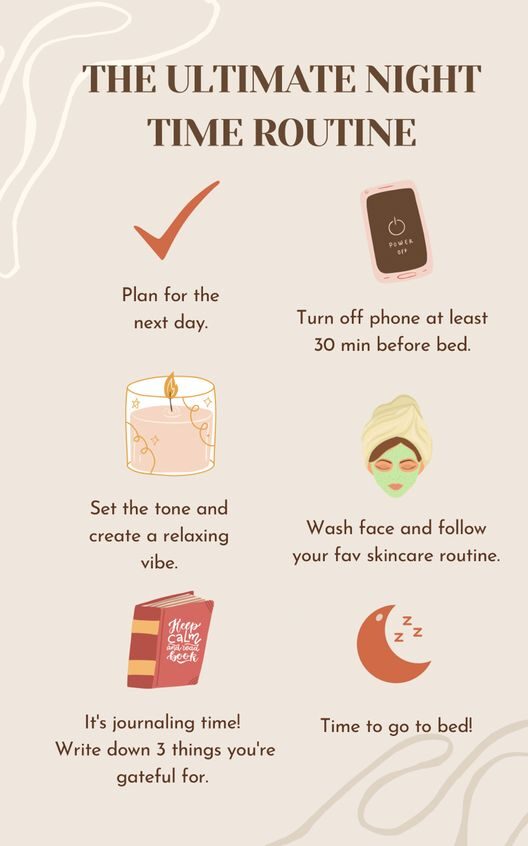Hello there, fellow sleep-seeker! If you’re tired of tossing and turning every good night sleep, desperately craving a restful slumber, you’ve come to the right place. As someone who understands the struggles of sleepless nights, I’m here to share some practical tips and insights on how to finally achieve the peaceful, rejuvenating sleep you deserve.
Table of Contents
Create a Relaxing Bedtime Routine
The foundation of a good night’s sleep starts with a consistent bedtime routine that signals to your body and mind that it’s time to wind down. Set aside at least 30 minutes before sleep to engage in calming activities. This could involve reading a book, practicing gentle yoga, or even indulging in a warm bath. Avoid screens during this time as the blue light emitted by phones and laptops can interfere with your body’s natural production of melatonin.

Mind Your Sleep Environment
Your sleep environment plays a pivotal role in the quality of your sleep. Make sure your bedroom is a haven of comfort and tranquility. Invest in a comfortable mattress and pillows that provide the right support for your body. Keep the room at a comfortable temperature and block out excessive light and noise that might disturb your slumber. Additionally, using blackout curtains can help create a cave-like darkness conducive to deep sleep.
Stay Consistent with Sleep Schedule
Our bodies love routine, and this holds true for sleep as well. Even on weekends, try to keep your bedtime and wakeup time consistent. Consistency aids in regulating your body’s biological clock, making it simpler to naturally go to sleep and wake up. Avoid the temptation to oversleep on weekends, as this can disrupt your sleep schedule during the week.
Mind Your Diet and Hydration
What you eat and drink can significantly impact your sleep quality. Avoid eating large meals just before bed because digestion can make it difficult for you to get a good night’s sleep. Similarly, be mindful of caffeine and alcohol intake, especially in the evening. While alcohol might make you drowsy initially, it can disrupt the later stages of sleep, leading to a restless night.
Stay Active, But Time It Right
Regular physical activity can improve sleep, but the timing matters. Engage in exercise earlier in the day rather than close to bedtime. Rigorous exercise releases adrenaline, which can make it harder to wind down. On the other hand, gentle activities like stretching or a leisurely walk after dinner can be beneficial for relaxation.
Manage Stress and Anxiety
Stress and anxiety can be major roadblocks on your journey to a good night’s sleep. Use relaxation methods such progressive muscle relaxation, deep breathing, or meditation. Consider keeping a journal to jot down your thoughts before bed, helping to clear your mind and ease into a state of calm.
Limit Screen Time Before Bed
The glow of screens from phones, tablets, and computers can trick your brain into thinking it’s daytime, disrupting the production of melatonin—a hormone that regulates sleep. Try to avoid using screens for at least an hour before going to bed. Instead, engage in soothing activities like reading a physical book or listening to calming music.
Create a Comfortable Bedtime Ritual
A consistent bedtime ritual can serve as a powerful signal to your body that it’s time to wind down. This could include gentle stretches, dimming the lights, and sipping on a cup of herbal tea. Over time, your mind and body will associate these activities with sleep, making it easier to transition into a restful state.
Consider Natural Remedies
If you’re open to it, certain natural remedies can support better sleep. Herbal supplements like valerian root, chamomile, or lavender can have a calming effect. Just be sure to consult with a healthcare professional before incorporating any new supplements into your routine.
Know When to Seek Professional Help
If your struggles with sleep persist despite trying these strategies, don’t hesitate to seek professional help. Sleep disorders and underlying medical conditions could be at play. A sleep specialist can provide a comprehensive evaluation and recommend personalized interventions to improve your sleep quality.
Conclusion:
Embarking on the journey to a good night’s sleep requires dedication and consistency, but the rewards are immeasurable. By crafting a soothing bedtime routine, optimizing your sleep environment, and adopting healthy lifestyle habits, you’re well on your way to experiencing the restful sleep you deserve. Remember, it’s not just about the quantity of sleep, but the quality that truly matters. So here’s to nights of deep, uninterrupted slumber and days filled with boundless energy and focus. Sleep well and wake up refreshed!



1 thought on “How to Get a Good Night Sleep”
Comments are closed.